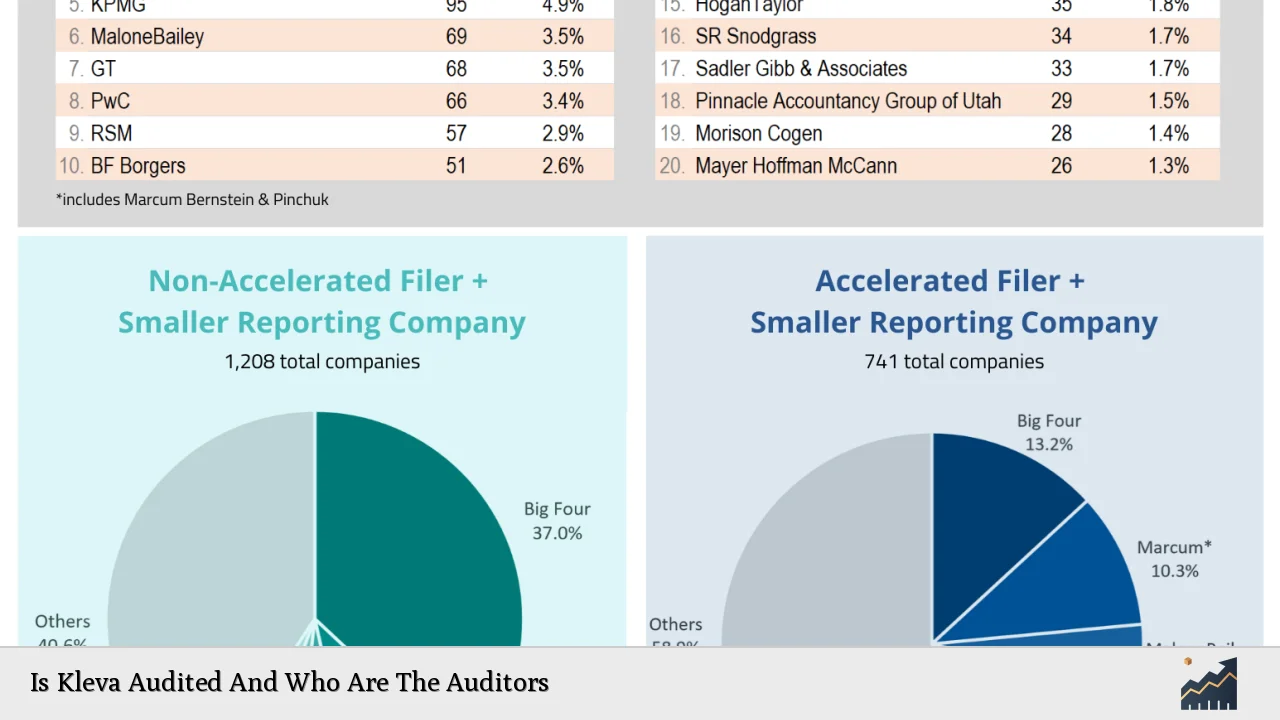Kleva Protocol is a decentralized finance (DeFi) platform that operates on the Klaytn blockchain, specializing in leveraged yield farming. As with any DeFi project, the integrity and security of its smart contracts are paramount for investor confidence and operational success. Therefore, understanding whether Kleva has undergone auditing and identifying its auditors is crucial for potential investors and users of the platform.
Kleva Protocol has partnered with Hacken, a reputable European cybersecurity firm, to conduct audits of its smart contracts. Hacken is known for its expertise in blockchain security and has performed both dynamic and static analyses on Kleva’s Solidity-based contracts. This collaboration aims to enhance the security of Kleva Protocol, ensuring that it adheres to high standards of safety and reliability in the DeFi space.
| Key Concept | Description/Impact |
|---|---|
| Auditing | Audits are essential in verifying the accuracy and security of a project’s financial statements and smart contracts. They help prevent fraud and errors, thereby increasing investor trust. |
| Hackens’ Role | Hacken’s involvement provides an additional layer of security assurance, as they specialize in identifying vulnerabilities within blockchain protocols, which is critical for user protection in DeFi. |
| Investor Confidence | A well-audited protocol like Kleva can attract more users and investors by demonstrating a commitment to transparency and security, which is vital in the competitive DeFi landscape. |
Market Analysis and Trends
The DeFi sector has experienced exponential growth over recent years, with total value locked (TVL) reaching significant milestones. As of late 2024, Kleva Protocol boasts approximately $90 million in TVL. This growth reflects a broader trend where decentralized platforms are increasingly becoming integral to the financial ecosystem.
Current Market Trends
- Increased Adoption: More users are shifting towards DeFi platforms due to their potential for higher returns compared to traditional finance.
- Regulatory Scrutiny: As DeFi grows, regulatory bodies are beginning to impose stricter compliance measures, emphasizing the need for transparent auditing practices.
- Security Concerns: The rise in hacks and exploits within the DeFi space underscores the importance of robust security measures, including thorough audits.
Implementation Strategies
For individual investors looking to engage with Kleva Protocol or similar DeFi projects, several strategies can enhance their investment experience:
- Conduct Thorough Research: Always review audit reports and understand the security measures implemented by the protocol.
- Diversification: Spread investments across various DeFi platforms to mitigate risks associated with any single project.
- Stay Informed: Regularly follow updates from the project team regarding audits, partnerships, and market trends.
Risk Considerations
Investing in DeFi protocols like Kleva comes with inherent risks:
- Smart Contract Vulnerabilities: Despite audits, there may still be undiscovered vulnerabilities within smart contracts that could be exploited.
- Market Volatility: The crypto market is notoriously volatile; prices can fluctuate dramatically within short periods.
- Regulatory Risks: Changes in regulations can impact the operational capabilities of DeFi projects, potentially affecting their viability.
Regulatory Aspects
The regulatory landscape for cryptocurrencies and DeFi continues to evolve. Key considerations include:
- Compliance Requirements: Projects must adhere to local regulations regarding financial transactions and user data protection.
- Audit Requirements: Some jurisdictions may require regular audits to ensure compliance with financial regulations.
- Investor Protections: Regulatory bodies are increasingly focusing on protecting investors from fraud and ensuring transparency within digital asset markets.
Future Outlook
The future of Kleva Protocol looks promising given its strategic partnerships and ongoing efforts towards enhancing security through audits. As the DeFi market matures:
- Increased Institutional Interest: More institutional investors may enter the space as projects demonstrate compliance and robust security measures.
- Technological Advancements: Innovations such as layer 2 solutions could improve transaction speeds and reduce costs associated with using DeFi protocols.
- Sustainability Initiatives: As environmental concerns grow, protocols that adopt eco-friendly practices may gain a competitive edge.
Frequently Asked Questions About Is Kleva Audited And Who Are The Auditors
- What is Kleva Protocol?
Kleva Protocol is a decentralized finance platform on the Klaytn blockchain focused on leveraged yield farming. - Who audits Kleva Protocol?
Kleva Protocol is audited by Hacken, a European cybersecurity firm specializing in smart contract security. - Why are audits important for DeFi projects?
Audits help ensure the security and integrity of smart contracts, preventing potential exploits that could lead to financial losses. - What does leveraged yield farming mean?
Leveraged yield farming involves borrowing funds to increase potential returns on investments made in liquidity pools. - How can I invest in Kleva Protocol?
You can invest by purchasing KLEVA tokens on supported exchanges or participating directly through their platform’s services. - What risks should I consider when investing in DeFi?
Investors should be aware of smart contract vulnerabilities, market volatility, and changing regulatory environments. - How does Hacken ensure the security of Kleva Protocol?
Hacken conducts comprehensive audits involving both dynamic and static analyses of Kleva’s smart contracts to identify potential vulnerabilities. - What is total value locked (TVL) in DeFi?
Total value locked refers to the total capital held within a particular DeFi protocol’s smart contracts.
In conclusion, Kleva Protocol’s commitment to security through its partnership with Hacken demonstrates its proactive approach toward building trust within the DeFi community. By ensuring robust auditing practices are in place, it positions itself favorably amidst growing competition and regulatory scrutiny in the evolving landscape of decentralized finance.

